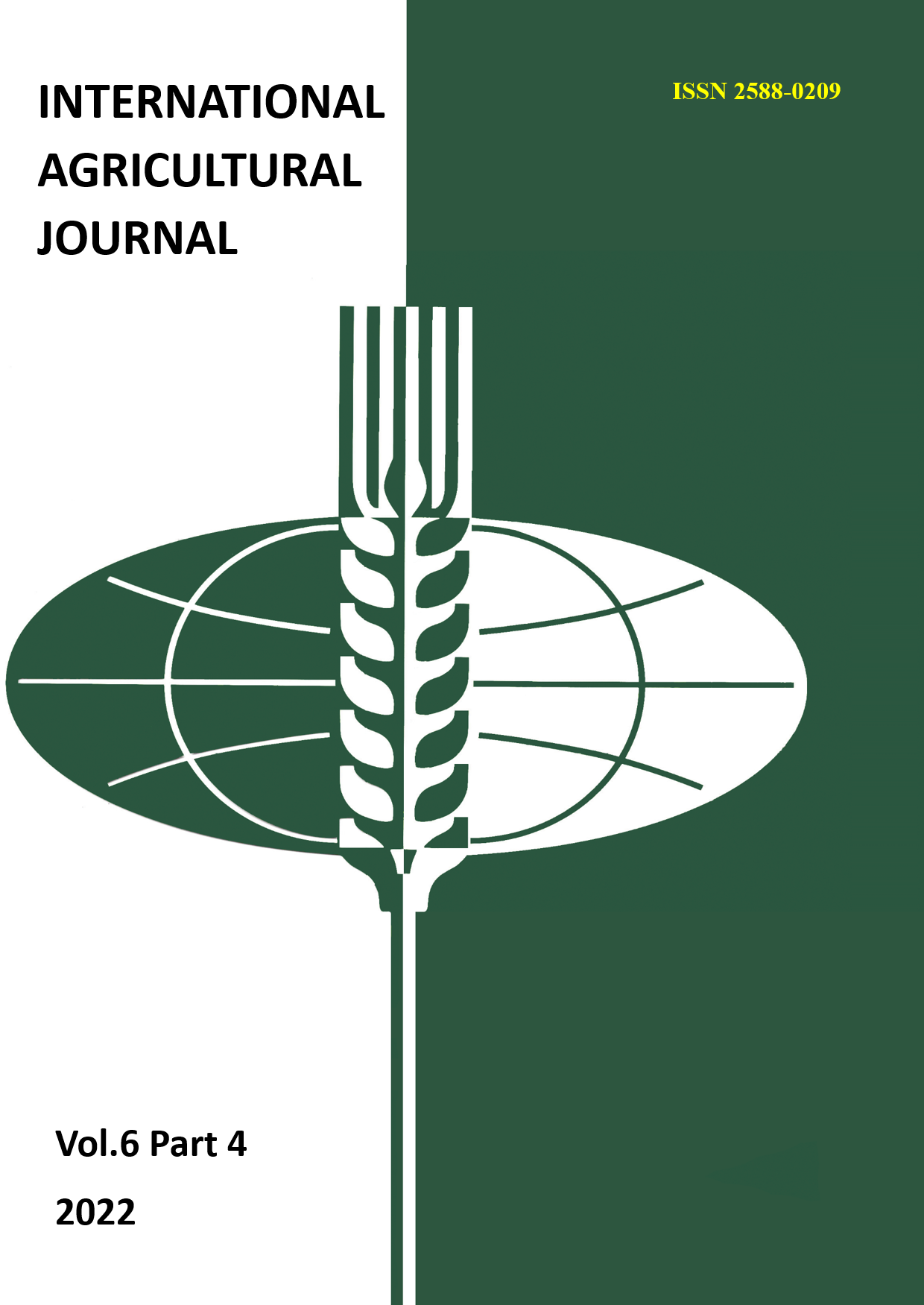FEATURES OF THE APPLICATION OF A SPECIAL TAX REGIME FOR AGRICULTURAL PRODUCERS
Main Article Content
Abstract
Agriculture is an integral part of the Russian economy, which is able to ensure food security for our country. In this regard, the agricultural sector of the economy to ensure the food security of the state, like no other branch of the economy of the Russian Federation, does not have as many tax advantages approved at the legislative level, and enjoys the exclusive right to apply a special tax regime – a single agricultural tax. However, the choice of the taxation system in agricultural organizations should be studied in depth, since the result of the financial and economic activities of the agricultural organization as a whole will depend on it to a certain extent. Currently, one of the main tasks for the Russian economy to get out of systemic sanctions remains the task of building an effective taxation system. The modern stage has redefined in the Russian tax system the role and place of tax instruments of the agro-industrial complex, specific by definition of essential characteristics, in connection with an industry feature, for example, seasonality, which is important for the execution of budget assignments by economic entities. The article highlights the issues of the possibility of applying various variants of tax regimes, characterizes the advantages and disadvantages of each of them, and also offers options for updating the unified agricultural tax for agricultural producers. The author analyzes the tax burden on the example of existing agricultural producers of the Tula region in the application of various tax regimes, the results of which showed the heterogeneity of the tax burden and, accordingly, the disparity of tax revenues to the budget funds of the Russian Federation.
Article Details
References
2. Gvozdikov A.V., Tomilina E.P., Glotova I.I. Problemy` perexoda predpriyatiya na ediny`j sel`skoxozyajstvenny`j nalog // Nauchno-texnicheskie vedomosti Sankt-Peterburgskogo gosudarstvennogo politexnicheskogo universiteta. E`konomicheskie nauki. 2009. № 3 (79). S. 131-135.
3. Davletshin T.G. Ediny`j sel`skoxozyajstvenny`j nalog s nds. Problemy` garmonizacii // Buxgalterskij uchet v byudzhetny`x i nekommercheskix organizaciyax. 2022. № 13 (541). S. 20-36.
4. Zaruk N.F., Mizyuryova V.V. Nalogooblozhenie e`ksporta agroprodovol`stvennoj produkcii v Rossii // E`konomika sel`skogo xozyajstva Rossii. 2021. № 12. S. 26-31.
5. Orlova E.O. Ediny`j sel`skoxozyajstvenny`j nalog: preimushhestva i perspektivy` // Finansovaya e`konomika. 2022. № 5. S. 229-232.
6. Shnigir` Ya.A., Mel`man I.V. Preimushhestva i nedostatki primeneniya edinogo naloga dlya sel`xozproizvoditelej // Uchet, analiz i audit: problemy` teorii i praktiki. 2021. № 27. S. 194-198.

